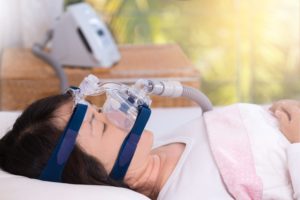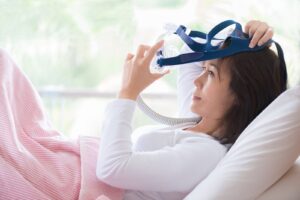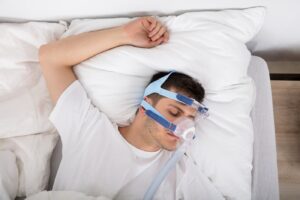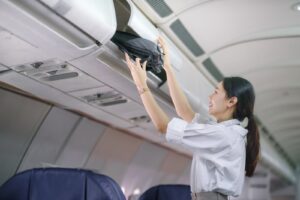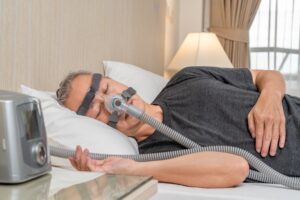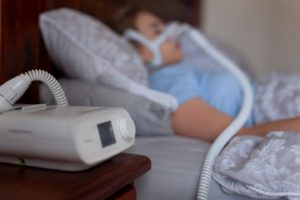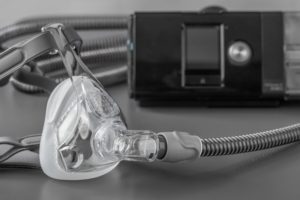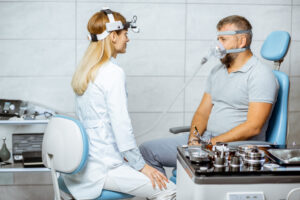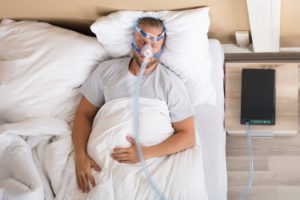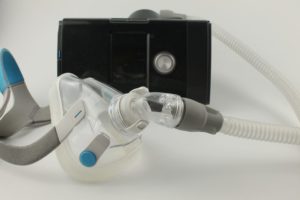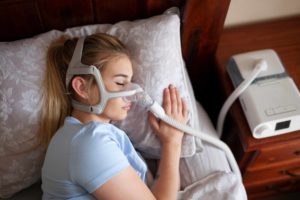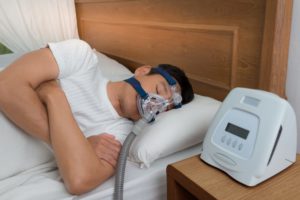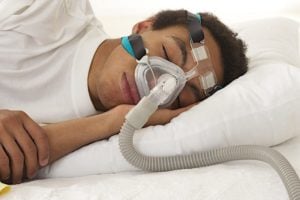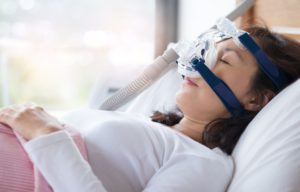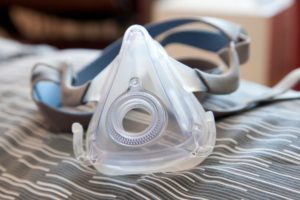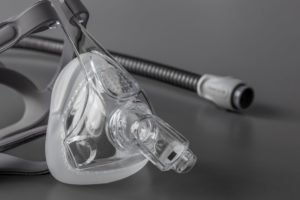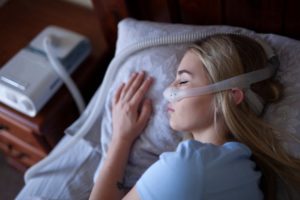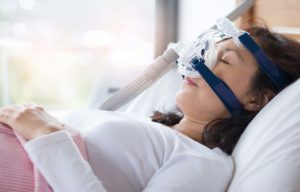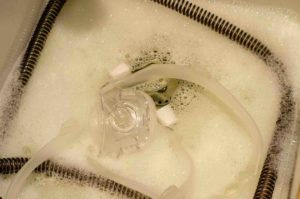Can You Rent a CPAP Machine?
A Breakdown of Short-Term PAP Rentals and Trials
Many people with sleep apnea get substantial relief by using a continuous positive airway pressure (CPAP) machine. While these devices are a standard treatment for obstructive sleep apnea (OSA), they can be expensive to purchase. Renting provides an opportunity to try out a CPAP model, and in some cases renting may even be required by health insurance plans.
We’ll cover who’s a good fit for a CPAP machine rental, why renting can be beneficial, and what costs may be covered by insurance.
CPAP Machine Rental Overview
CPAP machines are medical devices that are designed to last for years, so they can be expensive. Renting a CPAP machine is a worthwhile option for people who want to test out a machine before purchasing it as well as those looking to try a different style or brand of CPAP device.
Some health insurance providers require a CPAP to initially be rented over a specific period of time. This allows them to assess how well CPAP therapy is working before providing long-term coverage for the device.
CPAP rentals can also fill a gap for people who need a machine for a temporary period, whether that’s a travel CPAP machine for a vacation or a replacement CPAP to use while an existing machine undergoes repairs.
Who’s a Match for CPAP Machine Rental
Renting a CPAP machine can have major benefits for both experienced CPAP users and those with a new sleep apnea diagnosis. Many people take time to adjust to sleeping with a CPAP machine. If you’re investing in your first one, a short-term rental can help make sure you find the brand and model that best matches your needs.
A machine rental can be a budget-friendly way to try out a new style of PAP therapy without committing to the total cost of a new machine. If your doctor has mentioned changing from fixed-pressure CPAP therapy to an automatic positive airway pressure (APAP) or bi-level positive airway pressure (BiPAP) machine, you can try renting one of these devices to find out if it works better for you.
Renting may be a match for you if you are headed on vacation and want a travel CPAP device that is compact, lightweight, and can run on battery power. A rental may also be helpful if you need to continue CPAP therapy while your regular device is being serviced or repaired.
A CPAP rental can also be a necessity for people with certain types of health insurance. The CPAP coverage provided by many health plans requires an initial rental period.
Who a CPAP Machine Rental May Not Work For
If you already own a PAP machine, your insurance isn’t likely to cover the cost of a rental, which may influence your decision. In addition, if you have the budget to pay for a CPAP machine out of pocket, it may be unnecessary to rent one.
CPAP Machine Rental Breakdown
There’s no one-size-fits-all method for renting a CPAP machine. Policies can vary widely depending on the rental company and insurance provider. However, there are common factors that you’re likely to encounter regardless of where you rent your machine and how you intend to pay for it.
Most machines have a defined rental period, which typically ranges from 1 to 18 months. Rent-to-own programs often break up the machine’s total cost over at least 10 months, making your monthly payment a bit more manageable. Rentals typically include the PAP device, a humidifier, and a set of tubing and other necessary accessories for the initial period of use.
Some rental companies charge a deposit that is refundable upon the device’s return, while others place a hold on your credit card for the device’s retail cost. Short-term rental companies expect you to return the device in good condition within a fairly strict time frame. CPAP supplies and accessories generally don’t need to be returned, but you should check each rental provider’s rules and regulations for exact terms.
Before renting, you should also consult your insurance provider to better understand your coverage. Some plans, including Medicare, require a specific rental period and proof of consistent CPAP use, while other plans don’t cover CPAP machine rentals at all.
Where to rent a CPAP machine:
There are numerous places to rent CPAP machines, both online and from in-person retailers. You’ll need to provide a prescription no matter where you rent your device.
- Online: If you already know what kind of device you want to rent, you can search for the exact type and choose from one of the many online rental providers. Though procedures vary by company, most will prompt you for your prescription, allow you to pick a rental time frame, and then outline deposit and return instructions.
- In-person: Certain medical device stores, sleep labs, and sleep specialists rent PAP machines in person. This may be the best option for those new to PAP therapy and people who want hands-on help learning how to operate a device. Specialists in sleep equipment stores and medical offices can help you choose between devices and offer advice on masks, hoses, humidifiers, and other CPAP accessories.
What’s included:
What is included in a CPAP rental depends on where you rent the device. However, most providers include many of the same components. At the very least, your rental includes the machine that you’ve chosen. Many also include compatible tubing and one or more filters that don’t need to be returned.
Most retailers don’t rent masks, headgear, chinstraps, or other CPAP accessories that come into contact with the face, but many companies sell each of these components. Make sure that you obtain CPAP accessories that are compatible with the machine you choose since not all masks, hoses, and devices are interoperable.
FSA, HSA, and medical insurance coverage:
Whether your insurance provider will cover a CPAP machine rental may depend on if you already own a device or not. Many insurance companies won’t provide payments for a second device, even if it’s a short-term rental. However, exact terms change from plan to plan, so it’s important to consult your provider.
If this is your first CPAP machine or you’re due for a new device, it may be easier to get insurance to cover a rental. In fact, many insurance companies require that you do a rent-to-own program. CPAP machines can be expensive, and enough CPAP users don’t stick with CPAP therapy that some insurance companies always start with a device rental. In this way, the insurance provider doesn’t lose as much money if a person decides not to continue using their CPAP.
If you have Medicare and have been diagnosed with obstructive sleep apnea, you qualify for a three-month CPAP machine trial. During the trial, your doctor will review your symptoms and data from the device to confirm that you are regularly using and benefitting from the CPAP machine. After three months, Medicare pays monthly installments of up to 80% of a predetermined amount once you’ve met a deductible. After 13 months of consecutive payments, you’ll own the CPAP machine. To qualify for this coverage, your doctor and device provider must be enrolled in Medicare.
If you have Medicaid, you’ll need to check with your state agency to get exact details on CPAP machine rental coverage. Many states follow the general Medicare guidelines for Medicaid coverage, which means that CPAP devices are covered under a rent-to-own system.
People with a health savings account (HSA) or flexible spending account (FSA) can typically use their funds to rent a CPAP machine and buy CPAP accessories, which may be helpful if your primary insurance doesn’t cover the entire cost of a CPAP machine rental.
Is Rental Insurance Required for CPAP Machine Rentals?
Many CPAP rental companies require some sort of assurance that they’ll be reimbursed if you break or lose a machine, whether that’s by purchasing rental insurance or putting down a deposit. Some providers place a hold on your credit card for amounts that can reach up to the machine’s retail value, while others take a deposit that’s refunded upon the machine’s return. Companies that require rental insurance will prompt you to purchase a policy before checkout.
Vacation, Short-Term, and Rent-to-Own CPAP Machine Rental Options
You can find a rental CPAP machine to fit your needs whether you’re looking to own the device eventually or just want to try a different model for a few weeks.
Travel CPAP Machine Rental
Travel CPAP machines are small, lightweight devices that allow you to continue PAP therapy more easily while you’re away from home. They often hold a charge long enough to work for at least one night without needing to be plugged in. Some devices also have DC power connections, which proves helpful for use in RVs or when car camping.
Travel CPAPs are an excellent choice for people who want to take a small machine in their luggage as well as those who may be away from a wall outlet for a short period. Renting or purchasing an additional portable CPAP battery can increase how long you can go between charges.
To rent a travel CPAP machine, you’ll need to find a supplier either online or in a brick-and-mortar store. After you pick the device you want, give the retailer a copy of your prescription and insurance details. Deposits are often required and refunded when the device is safely returned. If there’s no deposit required, rental insurance may protect against costs from damage or loss.
CPAP Machine Rental for a Trial Period
Renting a CPAP machine is a hands-on way to learn what kind of device you prefer. It’s also particularly helpful if you want to try a different type of PAP therapy, like APAP or BiPAP, which some users find more comfortable than CPAP therapy.
You will need a prescription to try these machines, and the terms of the trial period will vary depending on where you rent the device. Some may have strict rental periods, while others allow you to switch to a rent-to-own program if you like the machine. Regardless, trial CPAP rentals can make finding the right PAP machine a bit easier.
CPAP Machine Rent-to-Own Options
While researching CPAP machines, you’ll likely encounter rent-to-own options. This approach may be preferable if you would prefer not to pay the entire cost of your CPAP device upfront. Monthly payments can help decrease the immediate cost of getting a CPAP machine.
You also may need to use a rent-to-own program if it is mandated by your insurance company. Many insurance plans use rent-to-own plans rather than buying users a machine outright. The reason for this is that some people don’t use or don’t benefit from CPAP therapy, and the rent-to-own structure makes it possible to verify the success of CPAP treatment before covering the full cost of a device.

